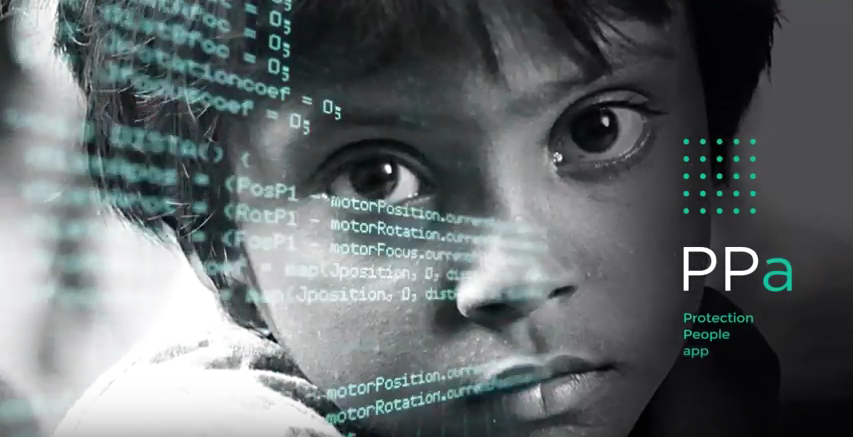INDIA: Salesian Bosco Centers utilizing new award-winning child app to identify children, access clinical records immediately

(MissionNewswire) The ChildPPa app, which was created by the nonprofit organization Itwillbe, has beaten out more than 300 competitors and won a jury-awarded prize from Talento Digital based on the app’s capacity to digitally transform the work of the nonprofit. Itwilllbe was launched in 2009 by Arancha Martínez, who has lived in India for five years doing humanitarian work. The app was created for the Salesian-run Bosco organization in India. PPa stands for Protection People app.
The goal was to create an app that could be used to help identify children and access their clinical and social history based on biometric patterns, including facial, digital and palm recognition. ChildPPa is a software that can be installed on tablets, computers and mobile phones with a Windows operating system. Along with a fingerprint reader and a palm scanner, users can read, sort and store the biometric data of any person, allowing operators to both create and gain immediate access to their full identification records without error.
“We created the app as a project for Bosco in India, which is dedicated to helping children who have run from home, a problem affecting up to 11 million young people in India,” explained Arancha Martínez in an El País article about the award.
He added, “With ChildPPa we managed to link each child with three biometric verifications: fingerprint, facial recognition and palm print. Facial identification can also fail, which is why we introduced the palm scanner because the veins of the hand follow a pattern that does not change over time.”
It is the first time that Fujitsu’s PalmSecure recognition technology is being used with children and in mobile environments with portable devices. The Japanese company explains that the scanner, commonly used for access to business buildings, hotels or confidential documents, makes an infrared reading of the veins that has less chance of failure than the readers of the retina or iris. Once the biometric readings are incorporated into the servers in the cloud, each child’s file is completely editable, and each time that person is identified, it is clear where, when and how it happened, and what action has been taken.
Salesian Father Thomas Aquinas from Bangalore had the task of coordinating the application of ChildPPa within Bosco. He noted in the article, “Everything started in 2013, when we realized that we had to create a database of children coming to our centers.” The goal of the app was to streamline this data collection as well as recall to identify children and bring up their historical information while in the field, something more challenging than in an office. The biometrical data ensures that children are not being entered into the system twice and are tracked accurately. It also gives outreach workers immediate access when encountering children who need support and services.
Bosco has 81 locations in India’s main cities, and its centers host close to 55,000 children who are runaways or abandoned. Bosco has just started using the app in four of its locations in Bangalore and expects to record about 70,000 children in the coming year.
“These children are part of our Child Missing program, which aims to keep online all the information possible about every person who comes to us to protect their health and development,” explained Fr. Aquinas in the article.
India is home to 25 percent of the world’s poor and more than 30 percent of the country’s population lives in poverty, according to the World Bank. With the largest number of child laborers in the world, India has made significant progress the past eight years reducing the number of out-of-school children from 25 million to 8 million. However, an estimated 11 million children live on the streets facing the daily horrors of rampant exploitation, forced labor, widespread substance abuse and physical violence. Many poor youth see little opportunity or hope for a better life.
###
Sources:
El País – Una ‘app’ para ayudar a niños sin hogar, premio del jurado Talento Digital
UNICEF – India
ITWeb article: Fujitsu palm vein recognition technology helps homeless youth in India to receive essential support
it-will be ChildPPa video on YouTube
PHOTO: Still from video




